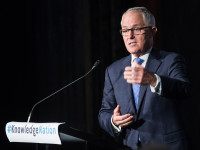The Trouble with the TPP series explores Internet-related issues this week, starting with the surprising inclusion of Internet governance in a trade deal. The debate over Internet governance for much of the past decade has often come down to a battle between ICANN and the ITU (a UN body), which in turn is characterized as a choice between a private-sector led, bottoms-up, consensus model (ICANN) or a governmental-controlled approach. Canada (along with countries like the U.S. and Australia) have consistently sided with the ICANN-model, arguing for a multi-stakeholder approach with limited government intervention. In fact, at the 2014 NetMundial conference, the Canadian government stated:
The multistakeholder model of Internet governance has been a key driver in the success of the Internet to date. Canada firmly supports this model and believes it must continue to be the foundation for all discussions in order to preserve the Internet’s open architecture. Canada firmly supports strengthening this model. Government centric approaches would stifle the innovation and dynamism associated with the Internet.
The Trouble with the TPP is that it contradicts Canada’s longstanding policy on Internet governance. While Canada, the U.S. and other TPP countries urge the governments of the world to take a hands-off approach to the Internet, the TPP opens the door to country-code domain intervention (note that I am on the board of the Canadian Internet Registration Authority, which manages the dot-ca domain).











